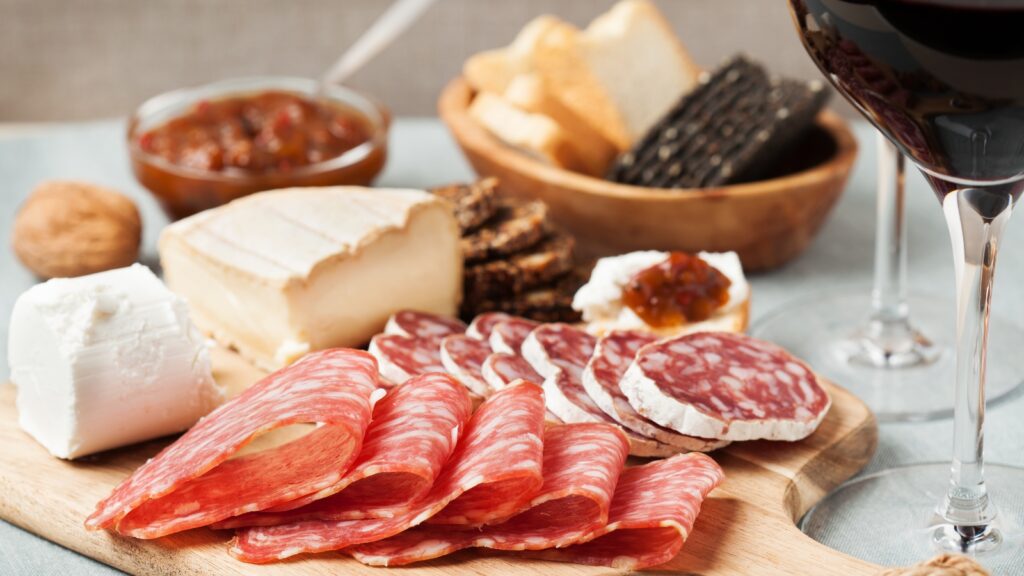Food safety authorities in France have confirmed that consuming charcuterie, which includes processed cold cuts of meat, is linked to a higher risk of colon cancer.
Charcuterie has a long history in France. Its preparation and consumption can be traced all the way back to the 15th century. Traditional charcuterie boards consist of cured meats like saucisson (a thick dry-cured French sausage), as well as cheeses and nuts.
But the nitrates added to processed meats increase the risk of cancer, says Anses, France’s national food safety body. It recommends that people reduce their consumption of foods like charcuterie for the benefit of their health.
The French government has confirmed it will create a plan to reduce the use of nitrates. The compounds are added to meats to increase shelf life and boost flavor.
But the health warning doesn’t just apply to charcuterie. All processed meat is a risk.
For example, bacon, which is eaten by nearly 270 million Americans every year, is often processed with nitrates. So is bratwurst, which originated in Germany but is now popular around the world.
Processed meat and cancer
Anses isn’t the first to confirm the link between processed meats and cancer. In 2015, the World Health Organization classified processed meat as a Group 1 carcinogen. This means there is sufficient evidence that its consumption increases the risk of cancer.
The classification was based on an analysis of 800 studies by The International Agency for Research on Cancer (IARC). At the same time, red meat (like beef and lamb, for example), was classified as a Group 2 carcinogen (this means it’s probably carcinogenic).
The IARC’s director, Dr. Christopher Wild, said at the time of the announcement: “These findings further support current public health recommendations to limit intake of meat.”
“At the same time, red meat has nutritional value,” he added. “Therefore, these results are important in enabling governments and international regulatory agencies to conduct risk assessments, in order to balance the risks and benefits of eating red meat and processed meat and to provide the best possible dietary recommendations.”






